New Beginnings, Part 2 (proofreading, dolmuşlar, and home cooking)
Tekrar merhaba,
The Fulbright ETA program is in some ways very strict—I may not accept any other paid work, I may spend no more than 12 days outside of the country during my grant period, I must give three days notice for domestic travel—and in other ways quite fluid. One more flexible area is the actual work that I do here, which is generally teaching speaking/listening classes, but which open-ended to “helping with university related activities” (hence being asked to write exams and supplementary materials last year). So far this year I’ve found myself doing a lot of proofreading. I did a 44-page master’s thesis last Tuesday and a 10-page article last Wednesday, but in both cases it was pretty draining to hold such close focus for so long, especially since there were a lot of sentences which weren’t necessarily ungrammatical but just weird in a way that was difficult to resolve. Turkish academics have a number of idiosyncrasies when writing in English, like framing sentences as, “It is the X that does Y,” instead of “X does Y,” and using “as” way more than necessary. Often though, the problem is just that the sentence is grammatical but doesn’t actually say anything, but I’ve firmly decided that that’s not my problem. The faculty I was helping seemed very pleased with my work, and Zafer actually offered me a job for next year. Unfortunately, the more I proofread, the less I’m able to remember which prepositions go with which verbs, and the more my brain turns into actual goop, so I told him I’d have to think about it.
By Wednesday evening, I was completely exhausted, and Summer and I went to a cafe near the university for dinner. We ate a subpar pizza and watched the traffic at the intersection. Turkey ostensibly has the same traffic rules as the US, but in practice the only rule everyone follows is, “I have the right of way.” Savanna describes it as organized chaos—the streets are a jumble of cars, taxis, trucks, buses, minibuses called dolmuş, construction vehicles, motorcyclists, pedestrians, and cats, and somehow there is also constantly road work going on. I took a time-lapse video of the intersection. Fast-forwarded, it looks so coordinated, but in real time it was quite suspenseful to watch vans backing up into the wrong lane of the intersection and two guys wearing sandals directing a concrete block into a hole in the road.
Beyond the traffic patterns, the transit that had me most stressed out were the dolmuşes, which my colleagues found endlessly entertaining. Dolmuş are common throughout Turkey, and I think in many other countries too, but for whatever reason there weren’t any in Alanya, so I never had to worry about it. A dolmuş is a van which functions as a bus, picking up and dropping off people along a set route, but with a few key differences:
- you must pay the driver in cash, and tell him how many people you are paying for and sometimes how far you are going (stressful, because I have never understood anything a Turkish bus driver has ever said to me)
- neither the route nor the schedule is written anywhere; you simply have to know the path that the dolmuş will take based on the destinations posted on its windshield and wait until one shows up (stressful, because how will I know if it’s going where I want it to go without having taken it before?)
- you must indicate that you want to get off by (as I was told) YELLING a certain phrase in Turkish, at which point the dolmuş will slow down (not necessarily stop) and you must jump off (obviously stressful!!)
So I was completely freaked out by them and spent hours asking various people to describe to me in detail how to take them and studying the different dolmuşes passing by on the street. Summer was eager to take them because although Trabzon has a municipal bus system, dolmuşes are the most efficient and common way to get across the city. I was a bit irritated by her eagerness, because I’m the one who has to do the talking, but eventually I agreed that we could go to the city center and figure it out.
Summer had met a young woman on a language exchange app, and we met up with her in Meydan Parkı, a lovely park in Trabzon’s downtown. She said she would take us to her friend’s henna night 1 at a hotel nearby. We were like, um, are random uninvited foreigners allowed to just show up? And she was like, yeah, for sure, why? The event space was pretty fancy, decorated with red and gold, party favors on the tables, and the groom greeting guests outside. Summer and I felt underdressed (I was wearing an all-denim outfit), and we spent about twenty minutes just sitting at a table, chatting in stilted Turkish and English waiting for things to get started. The guests were a kind of cross-section of Turkish women: aunties in silk headscarves, young women in tight pants, high-fashion hijabis, and frizzy-haired tweens. Inside the room was raucous music and no men older than 10 (other than the videographer), and as we walked out, we passed the other half of the wedding party: a sullen table of male guests drinking tea in silence.
Summer and Esma:
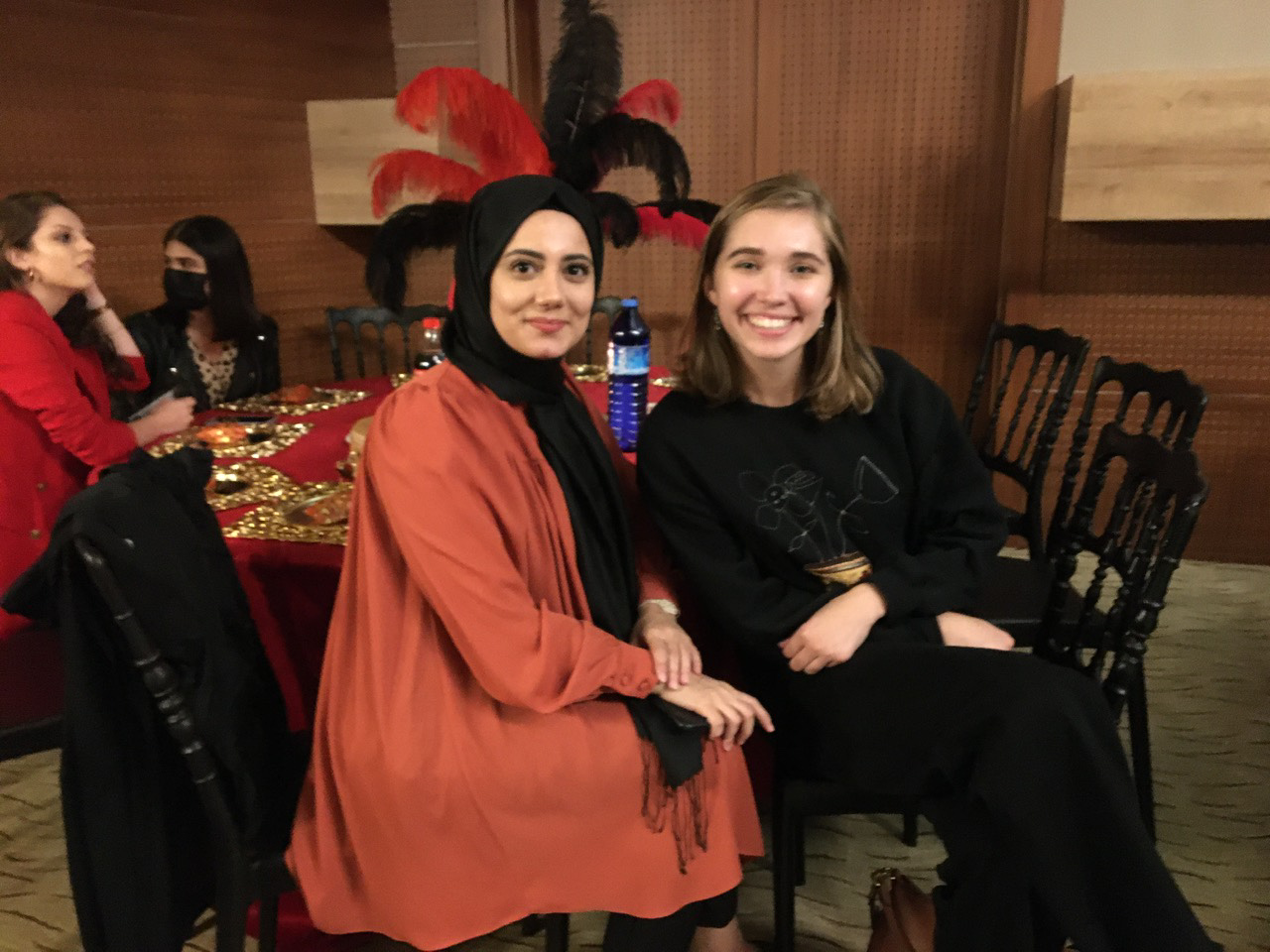
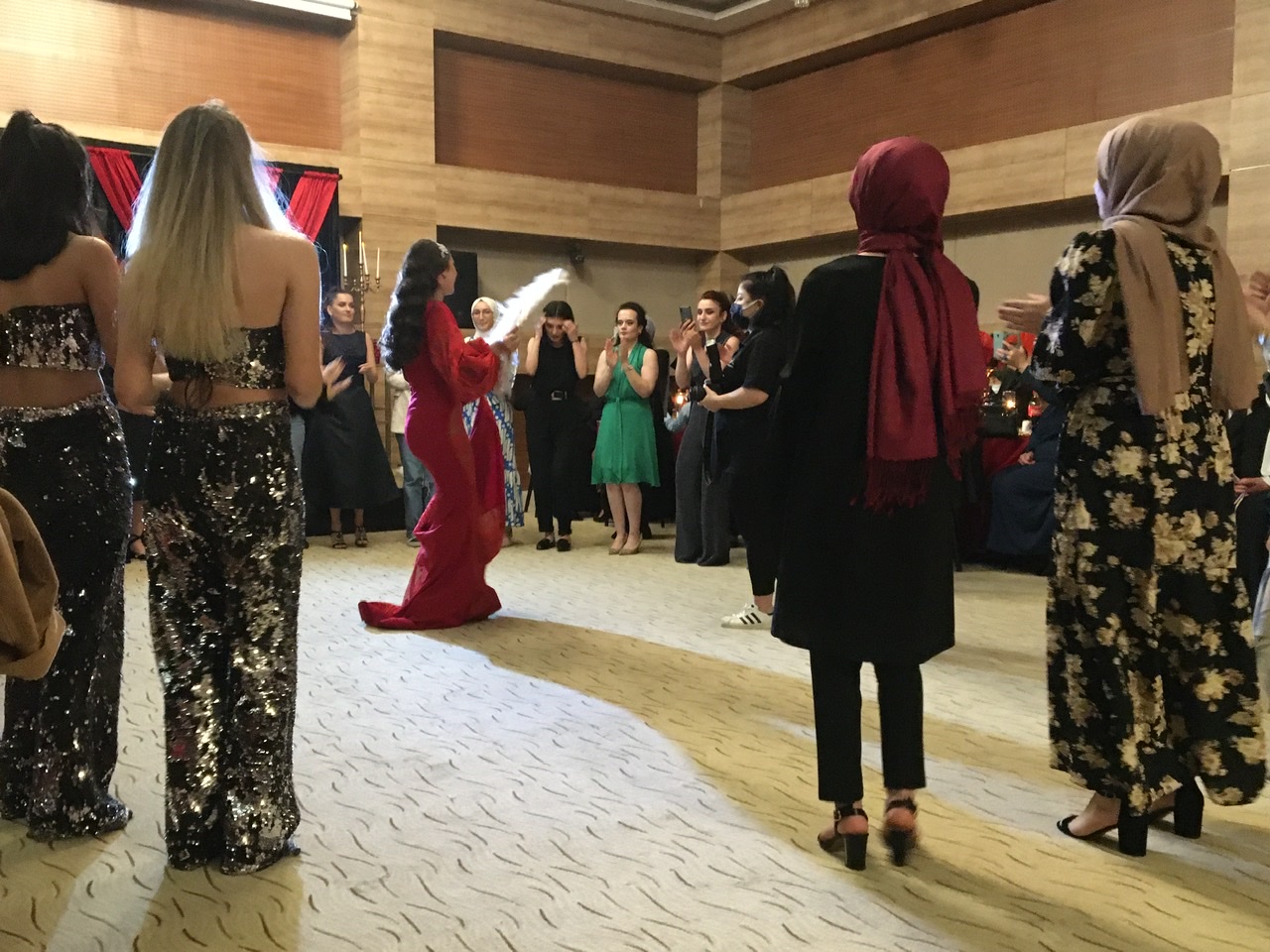
Our new friend, Esma, took us to a popular restaurant for dinner where we took a lot of selfies and laughed an annoying amount and swapped phrases in English and Turkish. Esma speaks about the same amount of English as I do Turkish, but there’s a lot of fun you can have despite and because of lacking a common proficient language. It was a really wonderful evening—the kind of thing I didn’t get to do at all in Alanya because of COVID restrictions and curfews. And, as promised, we took a dolmuş back to our neighborhood, which turned out to be very easy after all. Someone asked where we were going and pointed us to the right dolmuş, I paid in exact change, and we got off at the same stop as some other passengers, so I never had to say anything. And you don’t actually have to yell—when you want to get off, you say, “Müsait bi yerde,” and so far the drivers have come to a complete stop for us. We walked home from the dolmuş stop in an alcohol-free tipsy elation with our first night out on the town.
We’ve become such confident dolmuş users that this weekend we took two separate dolmuşes to go to the Ayasofya, a church-turned-mosque on the other side of downtown. Fırat had recommended a cafe there for getting kuymak, a cornmeal and cheese porridge signature to the Black Sea, although the description, “cornmeal and cheese porridge,” feels a bit inaccurate because the most prominent ingredient seems to be an unspeakable amount of butter. It was delicious (obviously) but so overwhelmingly rich that it almost sent me into a dissociative crisis. Summer and I ate as much as we could and still somehow did not make a dent. We wandered around the Ayasofya a bit then walked to a Carrefour (a French grocery chain) in hopes of finding some American-style peanut butter (no dice) and went to sit in a park. Aynur had invited us to go on a walk, and she and her husband picked us up and ended up taking us on an all-in-one-tour of the best sites in Trabzon: a mansion estate called Atatürk Köşkü (so named because Atatürk stayed there for all of two days2), a seaside walking path where we ate fish sandwiches called balık ekmek, and a little rocky beach where Summer and I were able to finally put our feet in the Black Sea.
The house and rose garden at Atatürk Köşkü:
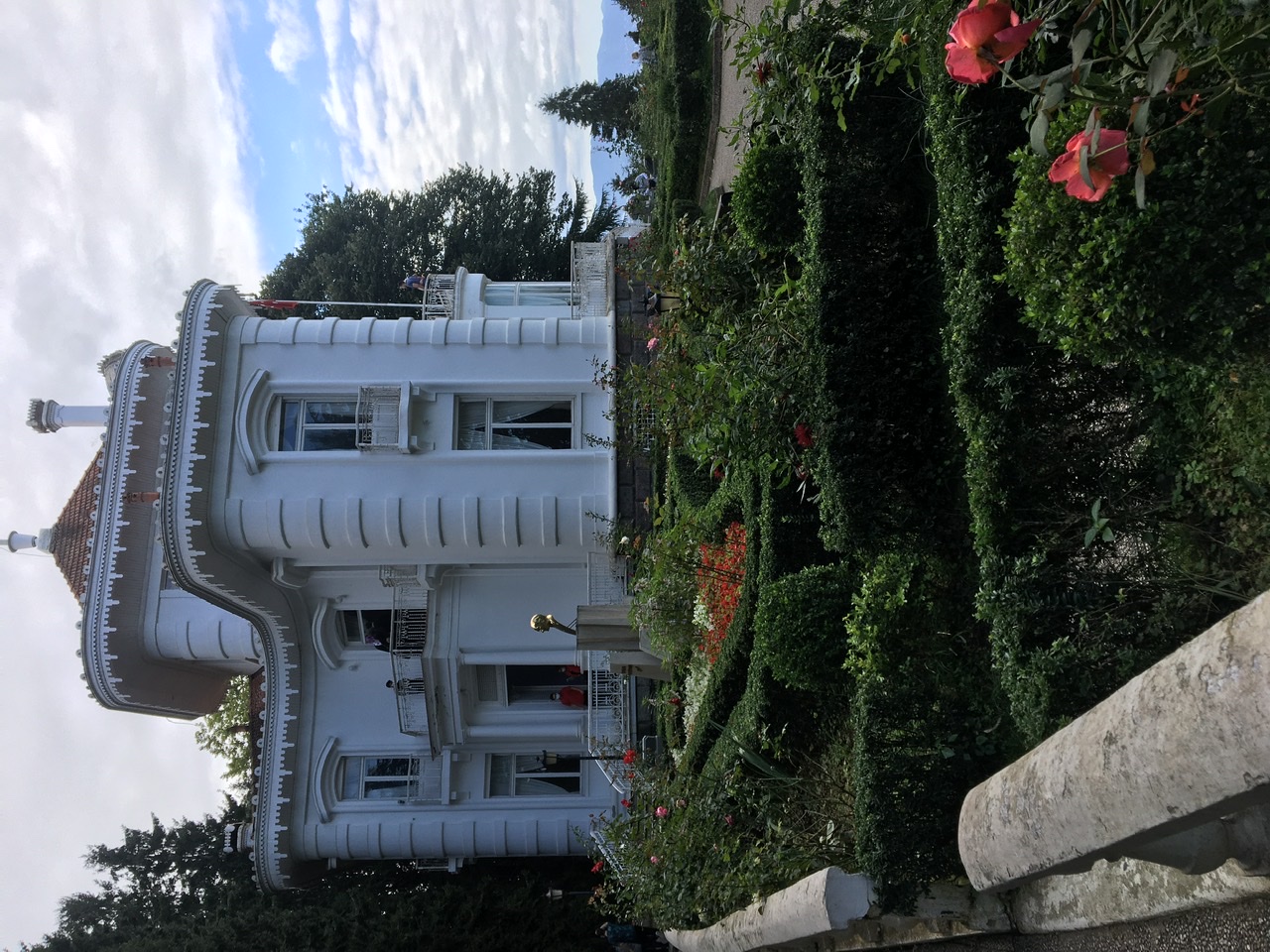
Panoramic view from the second floor. The grounds are a popular place for engagement and wedding photos; can you spot the couple?

Aynur and her husband Dursun with our balık ekmek (literally, fish bread):
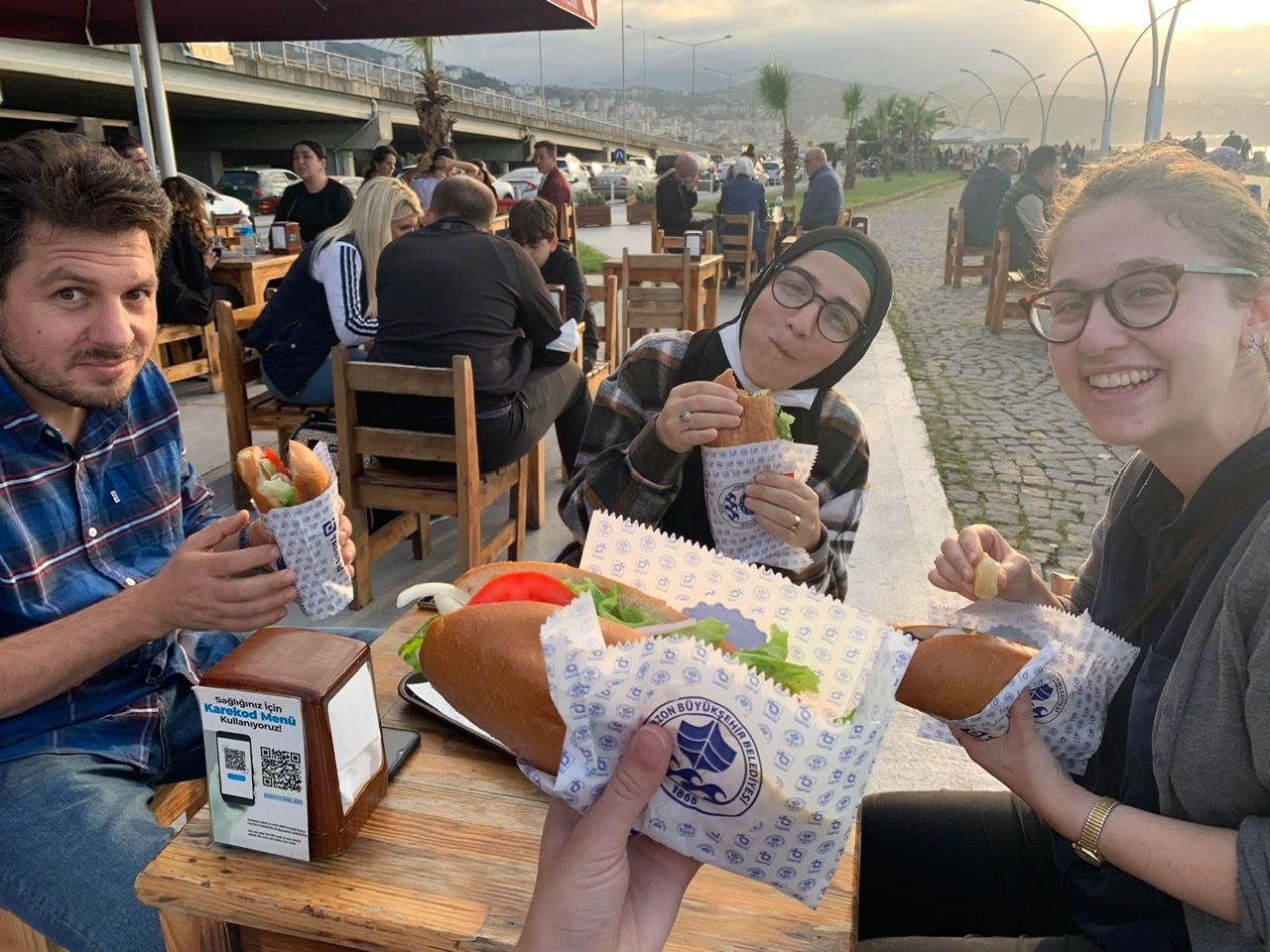
A proper introduction to the Karadeniz:
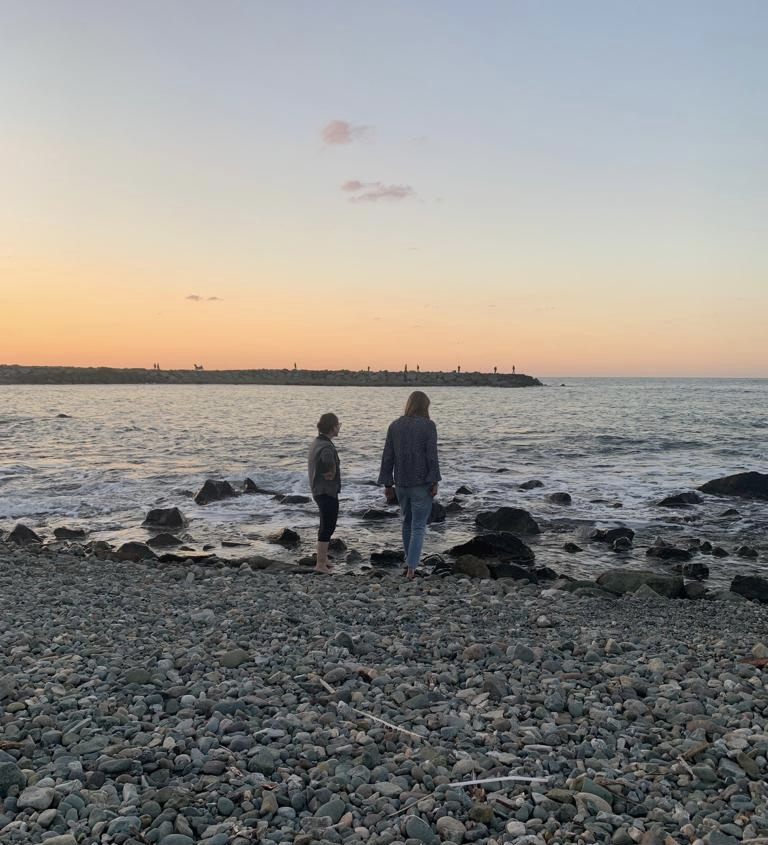
If you’re thinking, “Wow! Aynur sounds like a very generous and hospitable friend!” well, that isn’t the half of it. She had invited us over earlier in the week for tea/coffee and sweets/snacks, including some hazelnuts she had harvested in her husband’s village. On Saturday night, we went over to her place again to make chocolate chip cookies with her sons, and we stayed for an incredible meal which included homemade mantı, tiny meat dumplings which she had shaped by hand. I walked her older son through solving a Rubik’s cube, as promised on my previous visit, and it was the perfect kind of dreamy evening with friends.
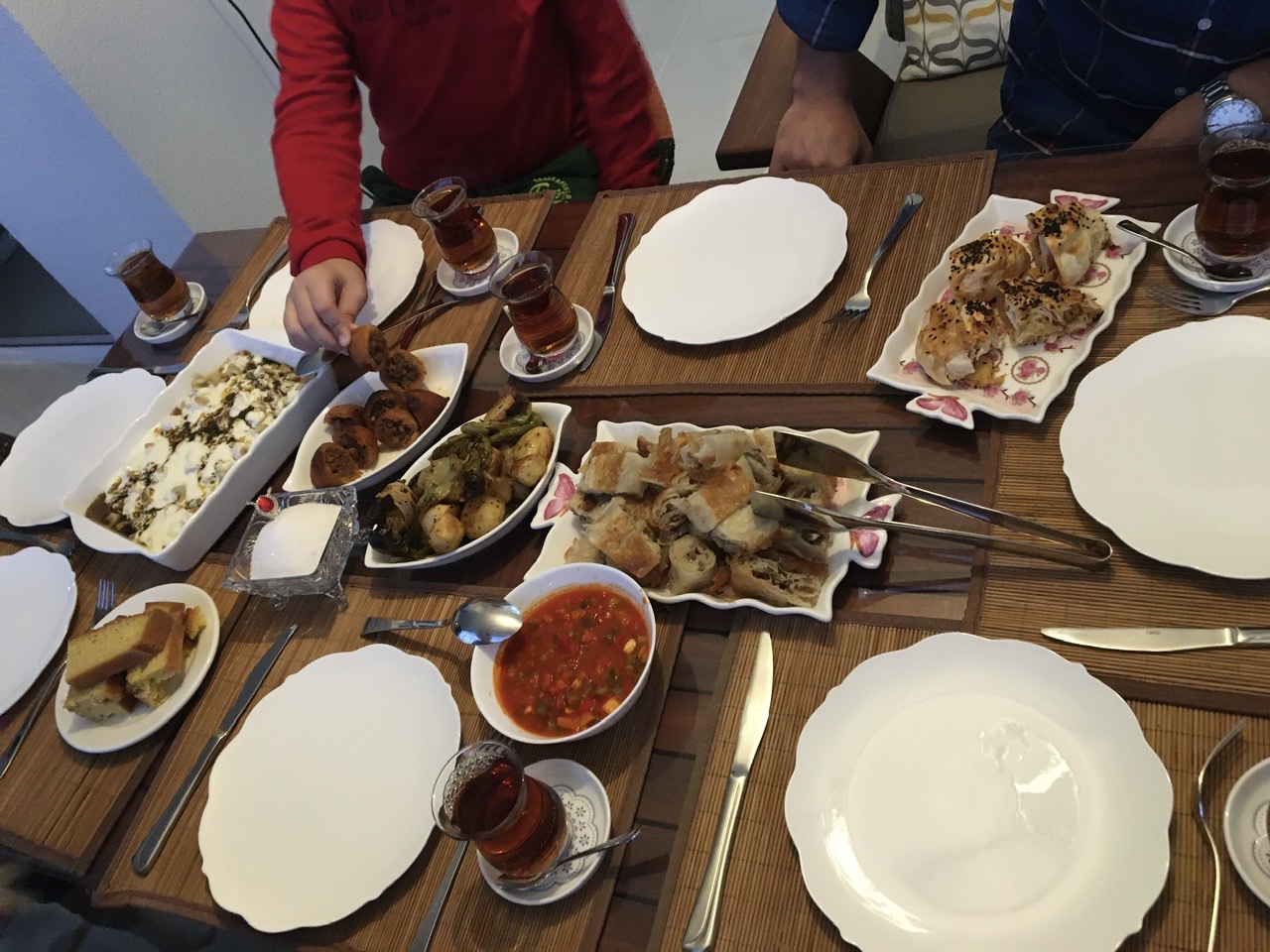
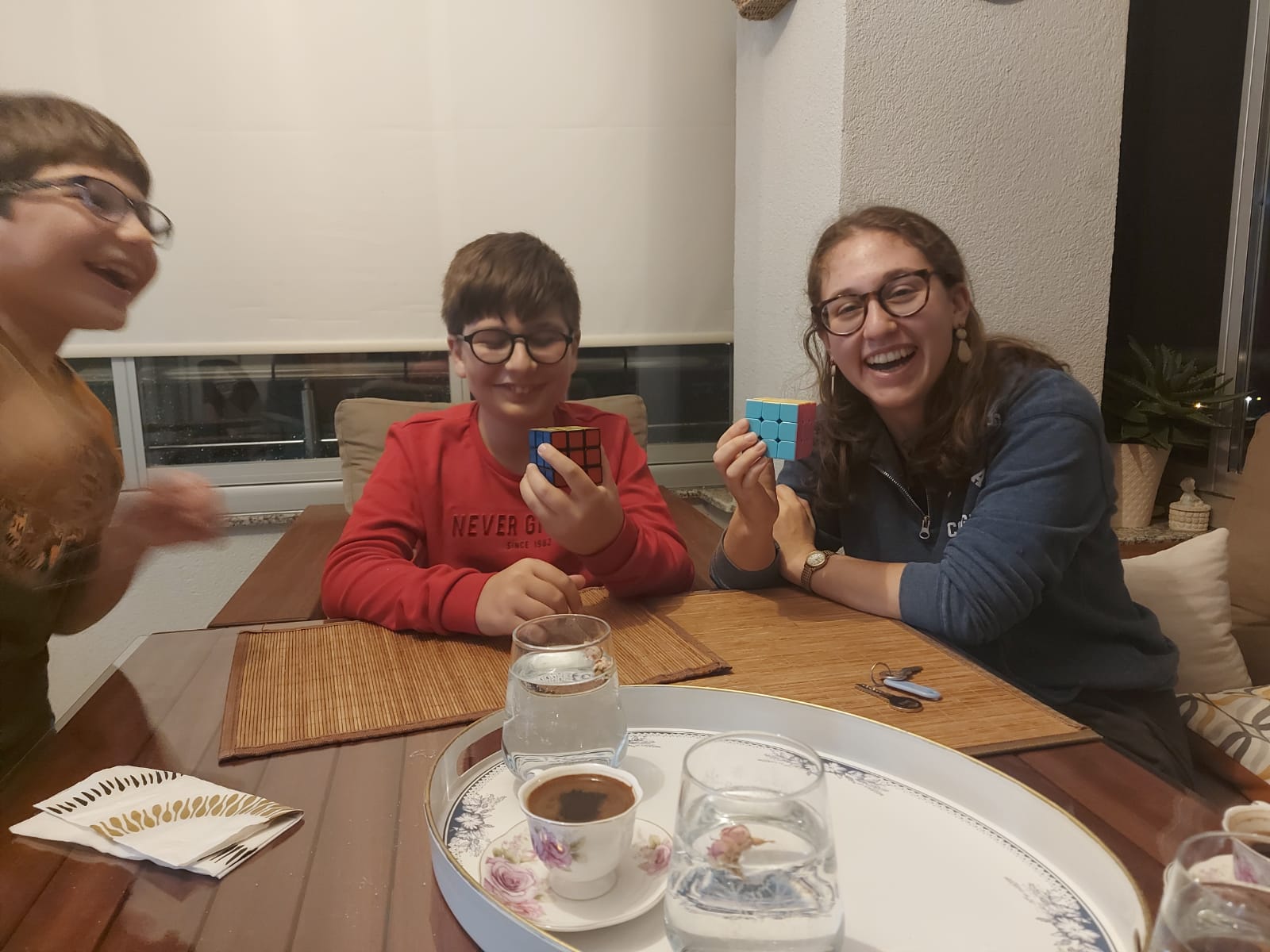
This past week has seemed comparatively uneventful. Classes start on Monday, so we were at school for three days of placement/proficiency exams, which I think were just about the same as exams anywhere, although the listening tests were, in my opinion, unfairly tricky3. Thursday I had another long and lovely lunch with Aynur at a campus cafe, and on Friday there was a faculty meeting, and we were finally given our course schedules. I felt like I was doing a listening test myself, straining to understand what they were saying in the faculty meeting, but I’m pretty proud of where my Turkish is at! As far as classes, I am teaching sections of three different beginner-level classes, 20 hours a week. I’m really not sure what to expect in them, but I’m very excited to find out!
One last note: you can reply to this email! I love hearing from you. Frankly, it’s my main motivation to keep writing these (that, and knowing how much Uncle David will complain if I stop).
All my best, Netta
-
Henna night is a traditional event leading up to a wedding at which the bride and female guests dance and get a dot of henna on their palms. ↩
-
Basically every town in Turkey has a building or museum known as Atatürk’s house because he spent one or two nights there. This one had a plaque with a short history of the house, which I found quite interesting: it was built in 1890 by a Greek Trabzon banker, and was turned over to the government in 1923 during “population transfers,” when Orthodox Christians in Turkey and Muslims in Greece were mutually “exchanged.” (Trabzon historically had very large Greek and Christian populations; no longer.) Upon visiting Trabzon, Atatürk admired the house, and grateful citizens gifted it to him. After his two-night stay, Atatürk gifted the estate to the treasury. However, the estate actually went to his sister after his death, who was compensated for it when the municipality decided to turn it into a museum. (Read more about this here.) I thought it was kind of remarkable they would mention the original Greek owner and population exchanges at all, since the sense I’ve gotten from most people here is that they know that this history does not necessary reflect well upon the Turkish state. ↩
-
An example of the sort of questions on the test: What is the play that Robert is interested in about? a) a hunter b) a pirate c) a doctor
AUDIO:Robert: I’ve been reading about this new play. Sally: The drama about the awfully cruel pirate? Robert: I’d forgotten about that one. I wonder how good it is. Actually, I was thinking about the new comedy, the one about the physican. Sally: Dr. Hunter. Robert: That’s the one.I mean, come on!! ↩